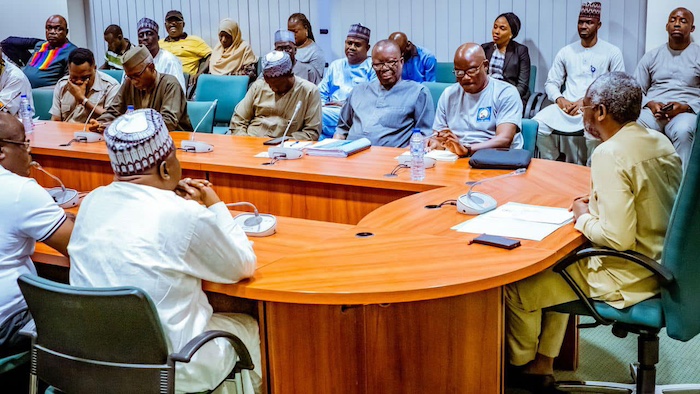The Academic Staff Union of Universities (ASUU) has raised concerns about the increasing hardship faced by public university workers, calling on the Federal Government to urgently address the challenges in Nigeria’s education sector. Speaking on Tuesday, Prof. Ayoola Akinwole, Chairman of ASUU’s University of Ibadan chapter, highlighted the pressing need for government intervention, stating that the situation has become unbearable for lecturers and other public university staff.
ASUU Ultimatum Nearing Deadline
In a release commemorating Nigeria’s 64th Independence anniversary, titled “Nigeria at 64: A State in Need of Deliverance from The Leadership of Perpetual Have-Nots”, Prof. Akinwole revealed that ASUU had issued a 14-day ultimatum to the Federal Government. With the deadline approaching, he warned that failure to meet ASUU’s demands could disrupt the fragile peace on public university campuses.
He noted that many lecturers have either fled the country for better opportunities, succumbed to financial difficulties, or resigned to take jobs in the private sector.
“Many [lecturers] ran away to other countries; many died as a result of financial debility; those who cannot run away got into debt just to survive, while many resigned to take another job in the private sector,” Akinwole stated.
Education in Crisis
Prof. Akinwole lamented the government’s lack of investment in education, attributing Nigeria’s downward spiral to poor leadership and neglect of the sector. He criticized the Federal Government’s excuse of lacking resources to meet the demands of workers, particularly those in the education sector.
“In sixty-four years of Nigeria’s independent existence, education and the state of the nation are both in a downward spiral,” he added, blaming the quality of politicians steering the country’s government.
Akinwole emphasized that without adequate tools, improved welfare packages for lecturers, and a conducive work environment, Nigeria’s universities would not be able to fulfill their mandates.
Call to President Tinubu
The ASUU chairman urged President Bola Tinubu to stop citing lack of resources as an excuse and instead focus on resolving the critical issues raised by ASUU. He called for increased funding to revitalize the education sector, improved remuneration for academics, and immediate action to address the country’s economic crisis.
He also warned that if the ongoing hardships facing Nigerians are not addressed, it could lead to multidimensional insecurity.
“It is more worrisome that amidst these economic woes, the government is channeling its expenditure to areas like purchasing new presidential jets and Cadillac Escalades,” Akinwole pointed out.
Widening Gap Between Rich and Poor
Akinwole expressed deep concern over the growing divide between the rich and the poor in Nigeria. He noted that while the wealthy continue to accumulate massive wealth, the majority of Nigerians are sinking deeper into poverty. The middle class, he argued, has been decimated by economic policies that favor the elite.
“The quality of lives of ordinary Nigerians has precipitously declined, and the gap between the haves and have-nots is daily expanding,” Akinwole remarked.
He criticized the government’s focus on palliatives rather than long-term empowerment solutions, stating that this has only worsened the socioeconomic challenges faced by the country.
A Warning for the Future
In his closing remarks, Akinwole warned that the country’s persistent poverty and inequitable distribution of resources could lead to serious consequences, including the rise of multidimensional insecurity.
“If the trend is not arrested, part of the imploding consequences will be that Nigerians can no longer eat well or sleep well, and the pervasive poverty will have entrenched a multidimensional insecurity,” he cautioned.
He argued that a fraction of the billions spent on luxury cars for Senators and House of Representatives members could solve many of the problems facing Nigeria’s education sector and lay the foundation for the country’s economic growth.
